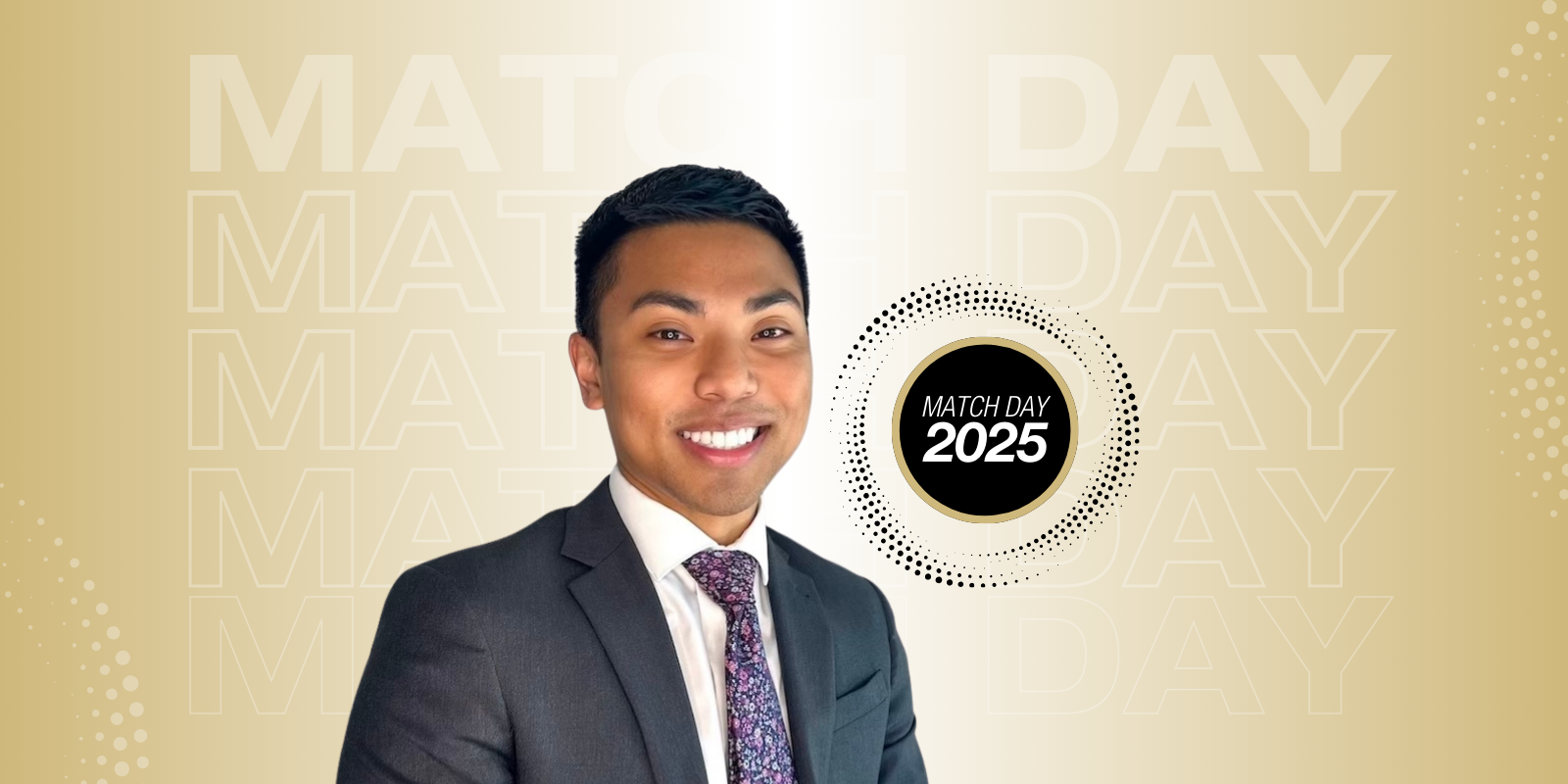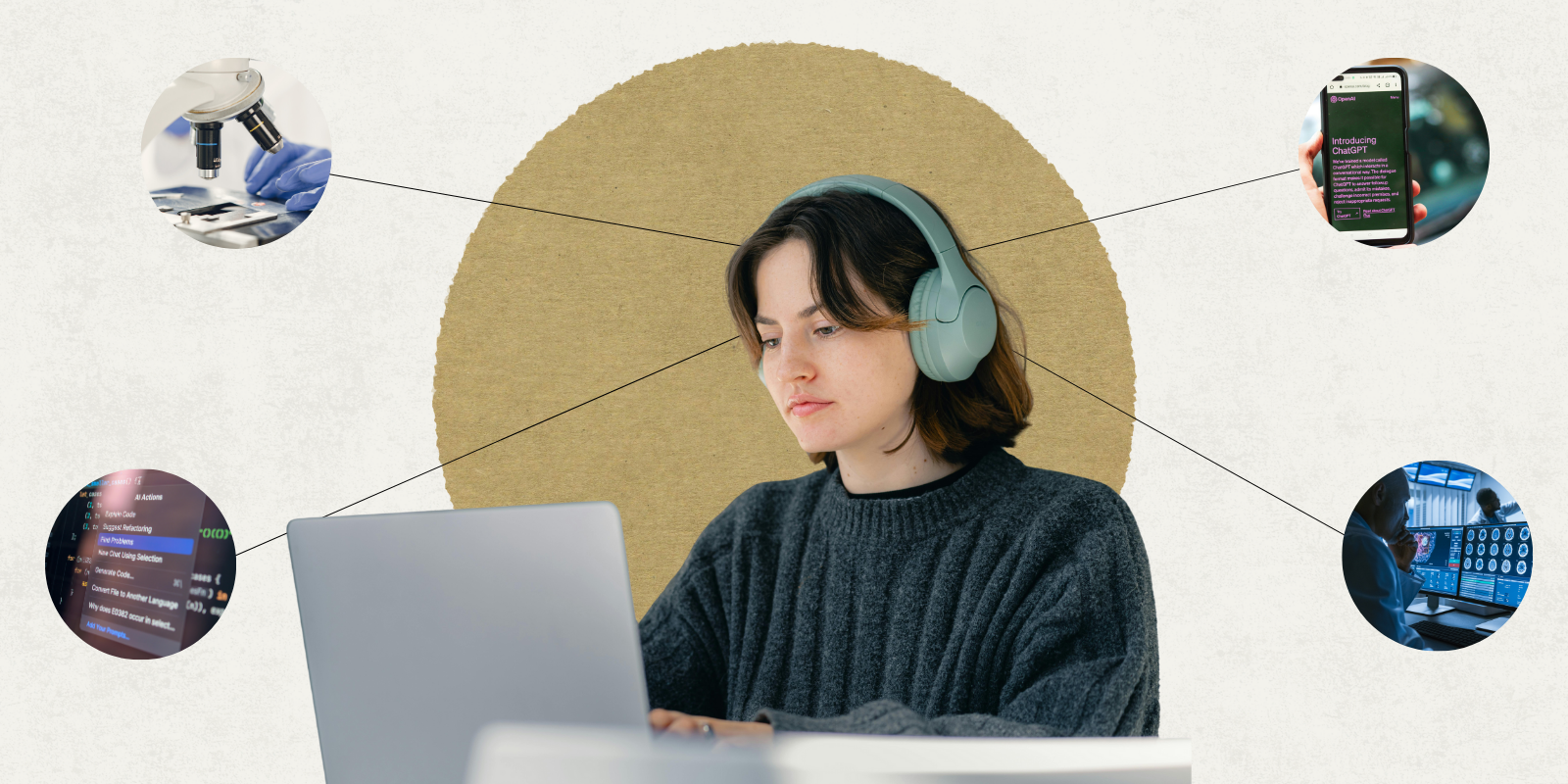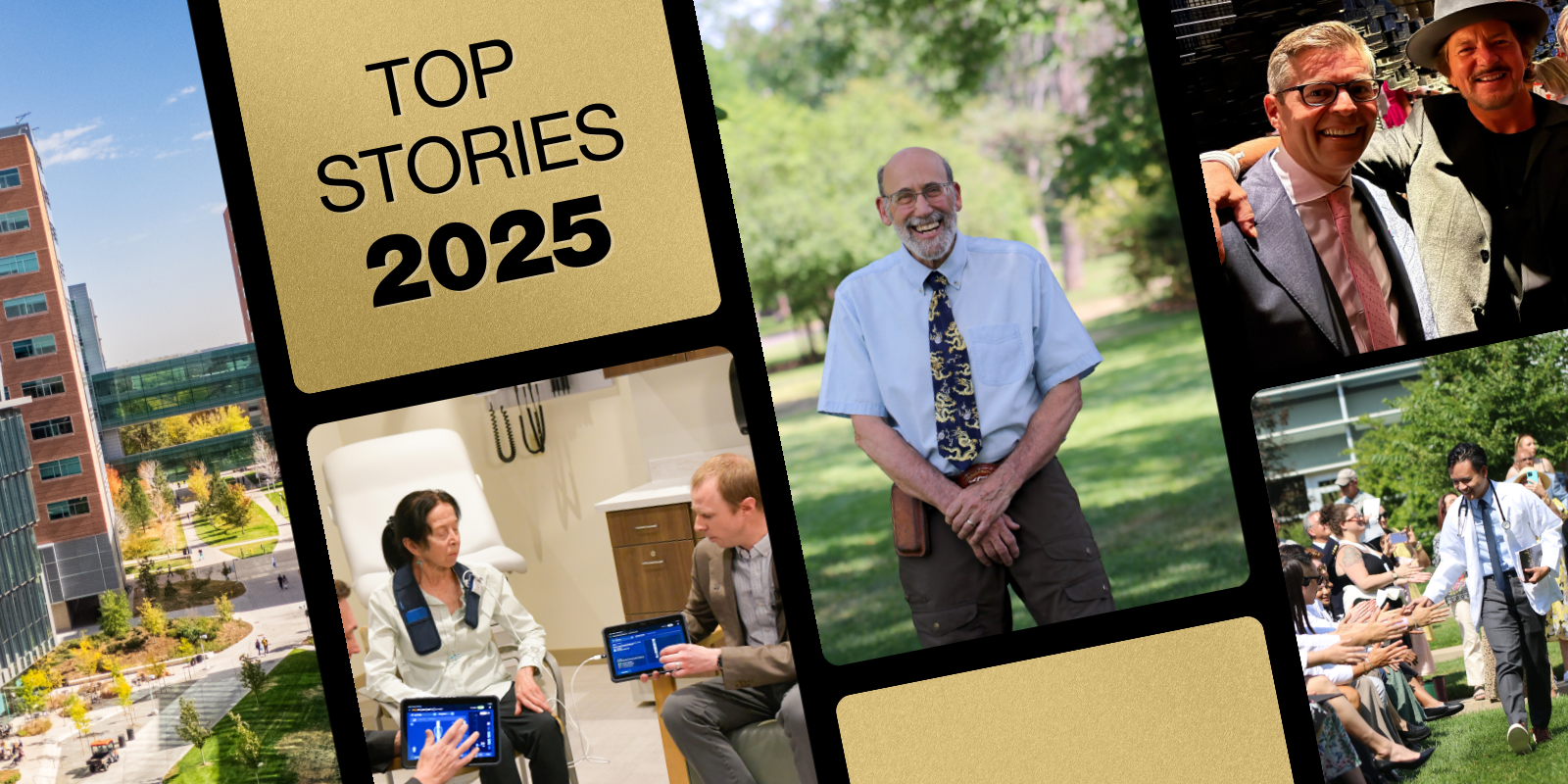As he nears the end of his four years as a student at the University of Colorado School of Medicine, Brandon Bellen thinks of the clinical goals he set for himself. One of them was to “learn how to process grief after the death of a patient.” When that day finally arrived, he says, “I would be lying if I said I was prepared.”
Bellen – who awaits Match Day, when he and his classmates will be matched with a residency program – wrote of that experience in an open letter to second-year clerkship students entering clinical rotations. It was one of several notes offering advice in a compilation written by members of the CU School of Medicine’s Class of 2025.
“While on trauma surgery, the team received an alert regarding a full activation. The patient was an unrestrained driver who had collided into a brick wall while driving 70 mph,” Bellen said in his letter. The patient’s blood covered the floor of the trauma bay. “As he coded for the first time of many, I performed chest compressions on him, fracturing his ribs in the process.”
When Bellen looked at the man’s face, he realized he had admitted the man from the emergency room a few months earlier. “I immediately remembered our long conversation about his life struggles. He began using alcohol after he lost both of his parents unexpectedly. He eventually faced his struggles head-on and participated in intensive rehabilitation. His sobriety spanned over a decade, but he relapsed a few months prior when he lost his child.”
Despite the team’s efforts, “we lost him,” Bellen says. “After sharing the news with family, his brother asked if we would participate in prayer. As everyone bowed their heads and closed their eyes, I was thankful that no one could see me struggling to maintain my composure and hold back tears.”
The gift of an angel pin
Bellen tells of another patient, one he admitted while on internal medicine. “I had a great time chatting with him and his wife. He was also a patient at my family medicine clinic, so I was able to keep up with them in the outpatient setting as well.”
Months later, the patient was admitted to the ICU for septic shock and was transitioned to comfort care. “I stopped by the hospital after clinic to say my goodbye, and I also met the rest of his family. I listened to their stories and memories about him before heading home. He passed away that evening.”
The patient’s family gave Bellen an angel pin as a reminder of how he cared for their loved one. “His daughter-in-law surprised me in clinic and handed me this pin. He used to be a welder and made this angel by hand. I keep this pin on my hospital lanyard so that I’m always reminded of the importance of connecting with my patients beyond medicine.”
Bellen says he is “still learning” from these experiences, and that he wrote his letter to the clerkship students because it reminds him of principles he tries to hold close.
“For one, humanity is desperately needed in medicine,” he wrote. “Every patient has a complex story, and I implore you to learn each one. This habit fosters true patient-centered care.”
Passionate about health equity
Humanity is a theme that runs through Bellen’s experiences at the CU School of Medicine and before. As an undergrad at Indiana University in Bloomington, Bellen got involved with MEDLIFE (Medicine, Education, and Development for Low Income Families Everywhere), a nonprofit group founded by a medical student at Dartmouth in 2004. Through the group, he spent a week in Cuzco, Peru, working with local doctors. “I really loved the mission of global health and providing care to underserved populations in a sustainable and longitudinal manner,” Bellen says.
Last fall, when he was one of three students selected for a CU LaCamera Oncology Travel Award to take part in an oncology-focused national conference, he presented his project, “Access to Palliative Care for Individuals with Cancer Experiencing Homelessness,” at the American Association for Cancer Research’s Conference on the Science of Cancer Health Disparities in Racial/Ethnic Minorities and the Medically Underserved.
“We found that patients experiencing homelessness were referred to palliative care earlier than their housed counterparts,” he says. “However, the time to their first outpatient appointment was longer, highlighting that there are systemic factors impeding their access to care.
Bellen says he has “always been passionate about health equity and health disparities. A lot of my work in medical school has involved that. I want to continue engaging with my community while I’m a resident and beyond.”

Left: Brandon Bellen after learning he had been accepted to the CU School of Medicine. Center: Bellen, in his new lab coat, with his mother, Charesa, and father, Ashley, at the CU School of Medicine Matriculation Ceremony. Right: Bellen presenting his poster, “Access to Palliative Care for Individuals with Cancer Experiencing Homelessness,” at the American Association for Cancer Research’s Conference on the Science of Cancer Health Disparities in Racial/Ethnic Minorities and the Medically Underserved. All photos courtesy of Brandon Bellen.
Hooked on Colorado
Bellen is the son of parents who immigrated from the Philippines in the mid-1990s. He was born in Northwest Indiana, growing up in the small city of La Porte, near Lake Michigan. “There weren’t a lot of Filipinos in the area. I think my brother and I were the only two in our high school.”
Medicine had long been in the back of Bellen’s mind as a career path. When he was very young, his mother worked as a physical therapist in an acute-care facility for orthopedic surgery, helping patients recover after operations. “I remember running around the office and talking with patients and loving it.”
As an undergraduate, he majored in biochemistry, “and by the end of my freshman year I committed to medicine.” His brother, two years older, also attended Indiana University. “We talk every day,” Bellen says. “He’s a really hard worker and very determined, and those traits motivate me.”
Bellen’s parents have also been cornerstones to his success. “Everything about them inspires me. They are incredibly selfless and have always prioritized my happiness, sacrificing a lot so that I could have these opportunities. I wouldn’t have made it to this point without their love and support.”
For medical school, after 21 years in Indiana, “I wanted to try a new environment,” Bellen says. He chose CU even though he’d never been to Colorado.
“As I was pulling out of my driveway, I thought, ‘Oh my gosh! What did I do?’ I was already missing my parents and my dog. I had no idea what was in Colorado. And then, once I got out of the cornfields in the Midwest and saw the mountains, I was hooked. I knew I had made a good decision for myself.”
‘That changed my trajectory’
The rigor of his undergraduate biochemistry classes helped prepare Bellen for the challenges of medical school. Nevertheless, he says, “my first year was difficult for me, not because of academics, but because of life in general. I’ve always had anxiety and depression, but it wasn’t prioritized very much in Indiana. I would just bottle up those emotions. But in the first year of medical school, I got overwhelmed with life.”
Bellen got help from his COMPASS Guide, John Frerichs, MD, part of a CU School of Medicine program offering guidance to medical students. “He was the one who noticed that things were not going well, and he reached out to me and made sure I got the help I needed. My parents, brother, and friends checked in and supported me, too. That changed my trajectory, so I’m very grateful to them.”
Bellen had already applied to spend his clerkship year (the second year of medical school) in the Colorado Springs Longitudinal Integrated Clerkship (LIC) Program, with its special focus on community engagement and health equity. He was one of about 20 students selected for the program.
“I really enjoyed being there and incorporating what I’d learned into real-life patient scenarios,” Bellen says. “But I always had this sense that I wasn’t doing enough, and when I got clinical comments that were laudatory, I just didn’t believe them.”
He credits his clinical director that year, Heather Cassidy, MD, “with helping me see that I was being too hard on myself. She hounded me to believe in myself. I’m a lot more confident in who I am as a clinician and person because of her.”
Bellen considers Cassidy a lifelong mentor and still reads her end-of-clinical year message when needing motivation: “I hope you keep driving hard ... and still remember to give yourself some grace amidst all that excellence!”
Fixing a problem
Over the course of medical school, Bellen has developed an interest in surgery. “I enjoy how you can discover a problem and fix it, and then your patient goes home, hopefully noticing immediate physical relief and peace of mind. And every case is a little different no matter how routine.”
Bellen is interested in various surgical fields including surgical oncology, surgical critical care, pediatric surgery, and colorectal surgery. “I have a long time before I need to commit to a specialty within surgery.”
He also has a career interest in academic medicine. “I love being in an academic center that does a lot of cutting edge, innovative things. Working with medical students would be so much fun. Here, I’ve been involved in teaching anatomy and clinical skills to the first-years, and I’d really love to continue that work in my professional career.”
While growing up, Bellen frequently visited the Philippines with his family, which helps explain why he sees global health as a potential research focus as he enters academic medicine. “I’d love to do a project in collaboration with a large medical center in the Philippines to provide specialty surgical care to some of the thousands of smaller islands there that lack access. That’s a big, lifelong passion of mine.”
Asked for a piece of advice for younger students entering medical school, Bellen says: “Trust in yourself. Find the people who celebrate your successes and support you during your failures and hold onto them tight. And take time to sit and be present with your patients.”
Update: On March 21, Brandon Bellen learned he had matched in general surgery at the University of California, San Diego, Medical Center.



